BeInCrypto recently got a chance to speak with IOTA co-founder Dominik Schiener at the Paris Blockchain Week Summit to discuss adoption, partnerships, and the future of the blockchain industry.
Please give us a short introduction about yourself.
I’m Dominik Schiener, originally from the mountains of Northern Italy. I’ve been involved in the blockchain space since the very early days — around 2012.
I started out with mining, made some money with that, then tried to set up my own cryptocurrency exchange in Switzerland. So, I became a part of shaping the Crypto Valley back in the early days, but I failed with the exchange simply because of all the regulatory and banking issues.
Then in 2015, I co-founded IOTA, and have since been focused 24/7 on that.
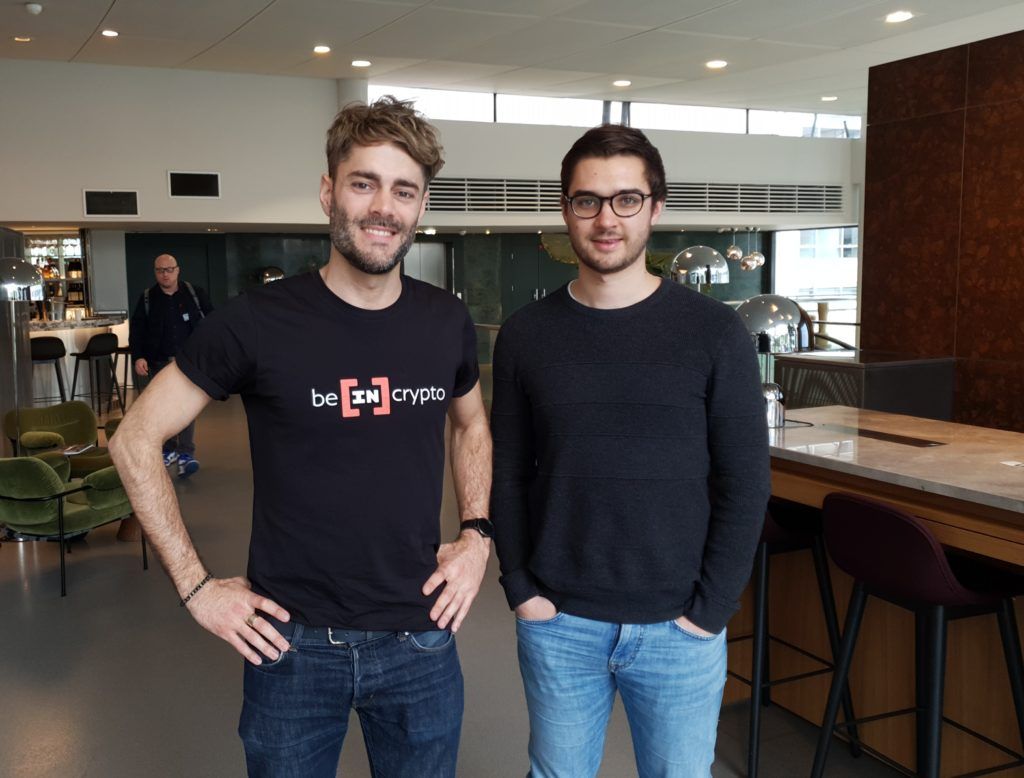 Cool! Could give us an elevator pitch on IOTA? It’s not yet the most famous cryptocurrency, so it’s worth getting a short overview of the concept.
IOTA is really focused on bringing blockchain to the internet of things (IoT) because IoT has a very concrete trust problem. Trust in data and trust in transactions are causing people to not want to use banks and financial institutions to enable machine-to-machine payments.
Blockchain and distributed ledgers make a lot of sense to solve this trust problem in IoT, but the problem is that blockchain itself is really not scalable yet. It’s still an early proof of concept.
What IOTA does is further improve upon this blockchain concept and introduces a new architecture known as tangle, or directed acyclic graph (DAG). It is focused on resolving the bottlenecks that blockchain currently experiences.
IOTA is now enabled to be much more scalable. It doesn’t have any miners, so it has a very different governance structure. Because it doesn’t have miners, it doesn’t waste electricity and does not have any transaction fees. All of these are really important to bring blockchain to IoT because you want to enable micropayments. You want to have one machine paying another machine for a small data set, or for the small execution of an algorithm.
Cool! Could give us an elevator pitch on IOTA? It’s not yet the most famous cryptocurrency, so it’s worth getting a short overview of the concept.
IOTA is really focused on bringing blockchain to the internet of things (IoT) because IoT has a very concrete trust problem. Trust in data and trust in transactions are causing people to not want to use banks and financial institutions to enable machine-to-machine payments.
Blockchain and distributed ledgers make a lot of sense to solve this trust problem in IoT, but the problem is that blockchain itself is really not scalable yet. It’s still an early proof of concept.
What IOTA does is further improve upon this blockchain concept and introduces a new architecture known as tangle, or directed acyclic graph (DAG). It is focused on resolving the bottlenecks that blockchain currently experiences.
IOTA is now enabled to be much more scalable. It doesn’t have any miners, so it has a very different governance structure. Because it doesn’t have miners, it doesn’t waste electricity and does not have any transaction fees. All of these are really important to bring blockchain to IoT because you want to enable micropayments. You want to have one machine paying another machine for a small data set, or for the small execution of an algorithm.
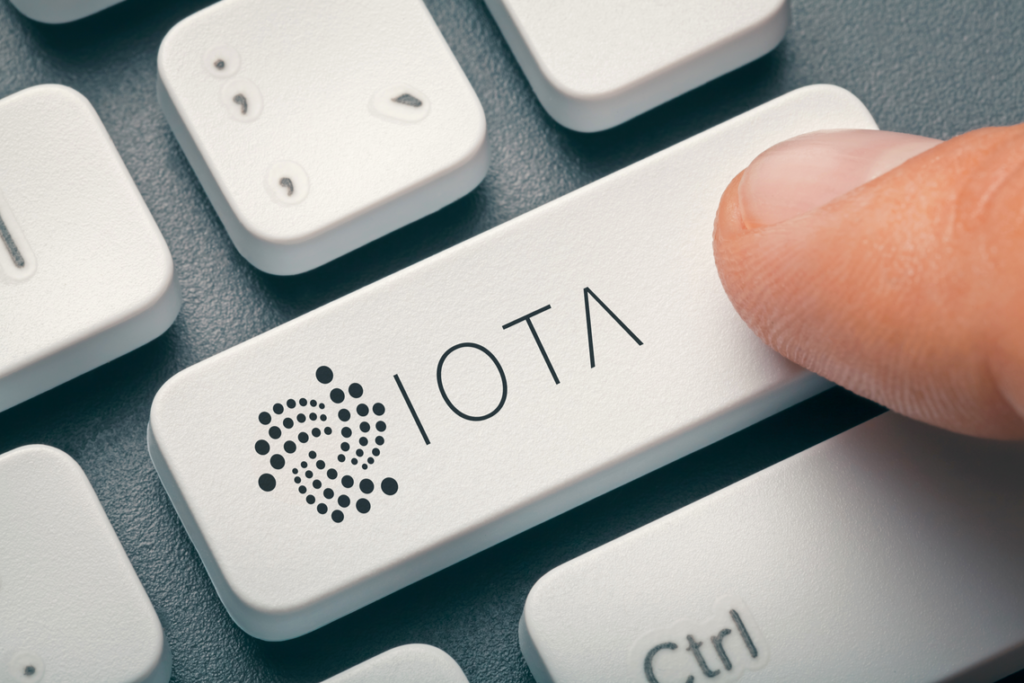 The Internet of Things is something I have heard about for around 10 years, kind of like Augmented Reality and all those technologies that we hear are the next big thing. However, it’s still not taking off and reaching mass markets. Will the IoT ever actually become a thing? What is the most likely timeline from your perspective?
So, all technologies go through the same hype cycle. Like how biotech was a major hype in the early 2010s — IoT went through the same hype cycle. IoT right now really brings productive value to companies because we see how they can save a lot of money through predictive maintenance and how they can enable new business models by connecting their machines.
I definitely think that IoT is already here and is proven to bring value to companies and will only increase with the billions of devices being connected in the future.
There are some technologies that are much more advanced now and also the machines are much smarter, which along with the infrastructure, have become more resilient. The only things that are really missing now are the economic and security components.
If we have these insecure networks that make up our mission-critical infrastructure, it could be a real threat to our society and to us as humans. This is why blockchain is really needed to solve these trust issues.
The Internet of Things is something I have heard about for around 10 years, kind of like Augmented Reality and all those technologies that we hear are the next big thing. However, it’s still not taking off and reaching mass markets. Will the IoT ever actually become a thing? What is the most likely timeline from your perspective?
So, all technologies go through the same hype cycle. Like how biotech was a major hype in the early 2010s — IoT went through the same hype cycle. IoT right now really brings productive value to companies because we see how they can save a lot of money through predictive maintenance and how they can enable new business models by connecting their machines.
I definitely think that IoT is already here and is proven to bring value to companies and will only increase with the billions of devices being connected in the future.
There are some technologies that are much more advanced now and also the machines are much smarter, which along with the infrastructure, have become more resilient. The only things that are really missing now are the economic and security components.
If we have these insecure networks that make up our mission-critical infrastructure, it could be a real threat to our society and to us as humans. This is why blockchain is really needed to solve these trust issues.
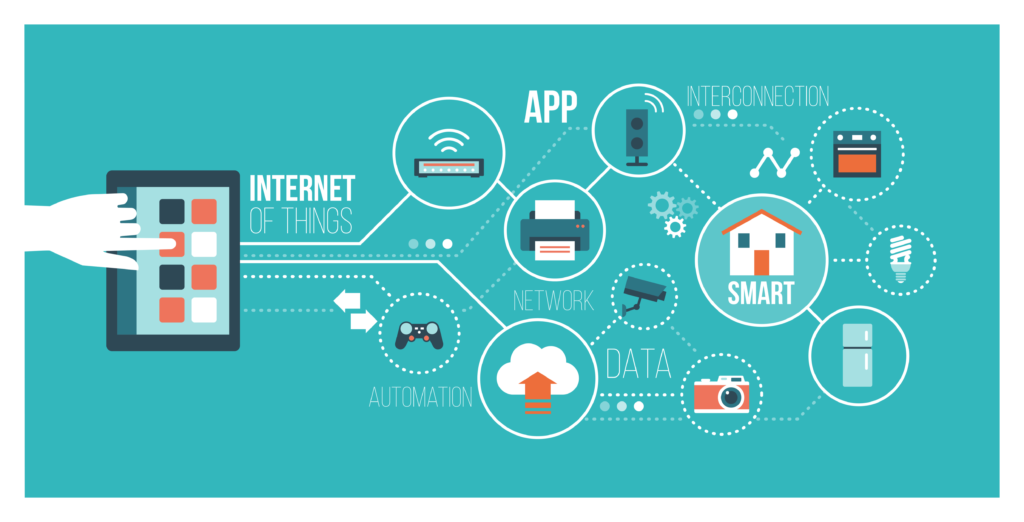 On the topic of security — one of your latest releases called the ‘Coordinator’ was meant to increase security on the IOTA network. Could you tell us more about it, and maybe address the concerns that this Coordinator makes IOTA some kind of centralized network?
Today, we have a well-established infrastructure of ASICs. If you launched the Bitcoin network today, those ASICs would basically race against each other and would be able to double-spend. As soon as you launch a network and you’ve seen double spends, the entire premise of a trustless decentralized network is gone.
So now, if you launch a new network you can think about two things in order to solve this. The first is to set up your own ASIC farm and say that only your ASICs can mine so you have a trust problem here — or you can set up checkpoints. In this system, a trusted entity would say, ‘Hey look, these are the valid transactions, please follow them.’
This is what Bitcoin (BTC) did in its early days. It utilized these checkpoints to secure the network until 2012. IOTA was launched in the same way and also has the coordinator which issues checkpoints. In the new version of IOTA, a checkpoint is now called a compass, which is there to guide the network to help figure out which transactions are valid, and which are not.
The validation and consensus are still decentralized, as the Coordinator doesn’t do any consensus, but instead, guides the network in the validation process.
The way we started IOTA was on completely different premises. We knew that we have a protocol that is still a proof of concept and still needs to mature a lot until it is really production ready. That is our focus now — to really make IOTA the first permission-less ledger with enterprise-readiness.
The way that we achieve that is through the maturity of the ecosystem. We are probably top-3 in the ecosystem in terms of company adoption, community, and developers. The other piece of the puzzle is removing the Coordinator, which is a big task for this year, but we have some very promising results.
On the topic of security — one of your latest releases called the ‘Coordinator’ was meant to increase security on the IOTA network. Could you tell us more about it, and maybe address the concerns that this Coordinator makes IOTA some kind of centralized network?
Today, we have a well-established infrastructure of ASICs. If you launched the Bitcoin network today, those ASICs would basically race against each other and would be able to double-spend. As soon as you launch a network and you’ve seen double spends, the entire premise of a trustless decentralized network is gone.
So now, if you launch a new network you can think about two things in order to solve this. The first is to set up your own ASIC farm and say that only your ASICs can mine so you have a trust problem here — or you can set up checkpoints. In this system, a trusted entity would say, ‘Hey look, these are the valid transactions, please follow them.’
This is what Bitcoin (BTC) did in its early days. It utilized these checkpoints to secure the network until 2012. IOTA was launched in the same way and also has the coordinator which issues checkpoints. In the new version of IOTA, a checkpoint is now called a compass, which is there to guide the network to help figure out which transactions are valid, and which are not.
The validation and consensus are still decentralized, as the Coordinator doesn’t do any consensus, but instead, guides the network in the validation process.
The way we started IOTA was on completely different premises. We knew that we have a protocol that is still a proof of concept and still needs to mature a lot until it is really production ready. That is our focus now — to really make IOTA the first permission-less ledger with enterprise-readiness.
The way that we achieve that is through the maturity of the ecosystem. We are probably top-3 in the ecosystem in terms of company adoption, community, and developers. The other piece of the puzzle is removing the Coordinator, which is a big task for this year, but we have some very promising results.
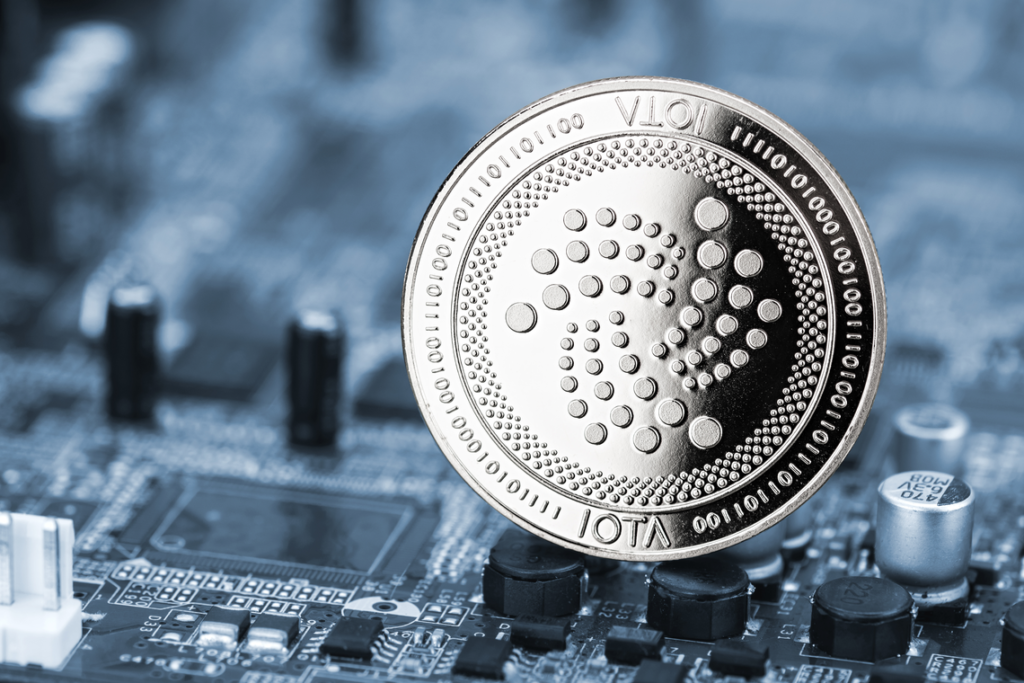 Since last year’s bear market, we have seen cryptocurrencies more or less recovering. If you met a new crypto investor, would you advise them to invest in IOTA, and what would your main argument be to support that advice?
We don’t give any advice on buying and selling. We. as an entity, focus on developing the core protocol and an ecosystem on top of it. The value proposition of IOTA is a very simple and concrete one. You purchase the token and it is utilized within the ecosystem, giving you a stake in the future of this machine economy.
IOTA decouples itself from the other networks because we have a very complete value proposition. Most of the other coins are just copycats being propped up by insiders, investors, and exchanges. As such, we are more focused on the value and utilization proposition of the token itself.
Another argument is that we have matured a lot over the last year. Our team is now made up of over 100 people in 23 countries. We are all focused on delivering value to this project and we are already one of the biggest ecosystems.
Companies want to utilize a token, they want to participate in the machine economy, and so for an investor, it is now easier to see the size of the ecosystem we have built, and the opportunities available. That is where investors should examine to make any investment decisions.
Since last year’s bear market, we have seen cryptocurrencies more or less recovering. If you met a new crypto investor, would you advise them to invest in IOTA, and what would your main argument be to support that advice?
We don’t give any advice on buying and selling. We. as an entity, focus on developing the core protocol and an ecosystem on top of it. The value proposition of IOTA is a very simple and concrete one. You purchase the token and it is utilized within the ecosystem, giving you a stake in the future of this machine economy.
IOTA decouples itself from the other networks because we have a very complete value proposition. Most of the other coins are just copycats being propped up by insiders, investors, and exchanges. As such, we are more focused on the value and utilization proposition of the token itself.
Another argument is that we have matured a lot over the last year. Our team is now made up of over 100 people in 23 countries. We are all focused on delivering value to this project and we are already one of the biggest ecosystems.
Companies want to utilize a token, they want to participate in the machine economy, and so for an investor, it is now easier to see the size of the ecosystem we have built, and the opportunities available. That is where investors should examine to make any investment decisions.
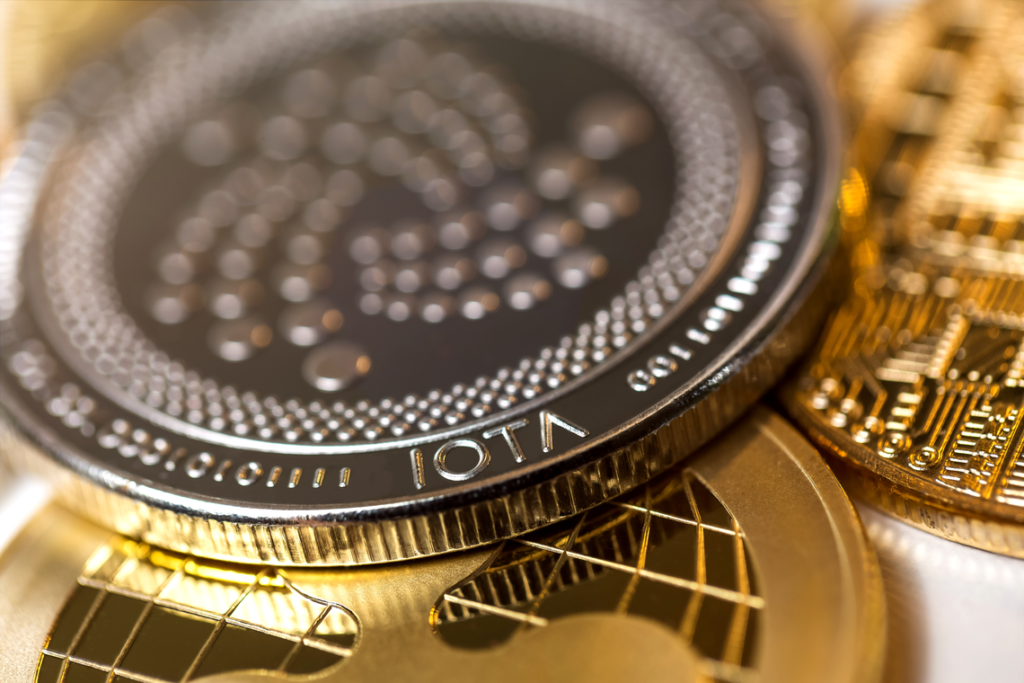 Would you bet that IOTA can break into the top 10 cryptocurrencies by 2020?
If not, I would be very disappointed.
We are not betting on the price and mostly focused on delivering value. If the market doesn’t see any value in what we have created or how our product has matured, then there is little else that can be said.
In your perspective, looking at the top 10 cryptocurrencies, which do you think doesn’t deserve its place?
Tron (TRX). It’s a copycat and I don’t see any concrete business value that they add apart from pumping the price.
In 2017 we completely lost focus on why we created distributed ledgers in the first place. It was all about making money and how much could be raised in an ICO — it was a complete waste of time.
I always say that the worst thing that can happen to blockchain and cryptocurrencies is that a bunch of nerds got incredibly rich. If that is what we achieve, then I want to get out of this space because the blockchain itself was created for new decentralized economies that solve an important trust problem.
If all we do is pump the prices without actually solving anything then I think we have failed miserably.
Would you bet that IOTA can break into the top 10 cryptocurrencies by 2020?
If not, I would be very disappointed.
We are not betting on the price and mostly focused on delivering value. If the market doesn’t see any value in what we have created or how our product has matured, then there is little else that can be said.
In your perspective, looking at the top 10 cryptocurrencies, which do you think doesn’t deserve its place?
Tron (TRX). It’s a copycat and I don’t see any concrete business value that they add apart from pumping the price.
In 2017 we completely lost focus on why we created distributed ledgers in the first place. It was all about making money and how much could be raised in an ICO — it was a complete waste of time.
I always say that the worst thing that can happen to blockchain and cryptocurrencies is that a bunch of nerds got incredibly rich. If that is what we achieve, then I want to get out of this space because the blockchain itself was created for new decentralized economies that solve an important trust problem.
If all we do is pump the prices without actually solving anything then I think we have failed miserably.
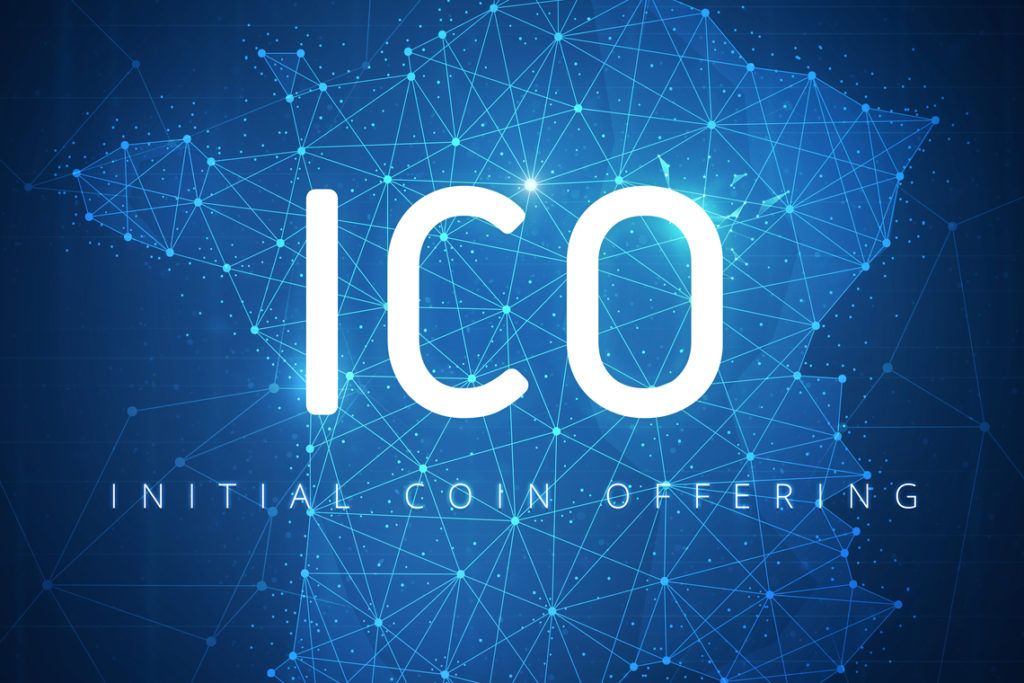 IOTA was recently announced as a founding member of a new initiative called INATBA, from the European Commission. Is this something concrete, or just fluff to make it seem like the European Commission cares about blockchain?
We have always said since the very early days of IOTA that we want to be regulated. The only way for a company to use a cryptocurrency is if it’s in a regulated environment where they know how to do accounting, bookkeeping, etc. The exciting thing is that the European regulators have started to realize that we need to start regulating this space, and the first step is to get the experts involved.
That is why the association was created. After months of deliberation and discussion, we are one of the founding members and are chairing the board, which is a very tremendous achievement. There are more than 100 organizations on board — and the exciting point to be made is that the industry is really represented. We have big companies like Accenture and IBM, we have policymakers on the European Commission backing it, and we have foundations like IOTA that are represented there.
The focus here is that we have a forum focused on discussions with policy-makers from all around the globe on how to regulate cryptocurrencies. This is the first initiative that really has so many members on-board and that has so much potential. More than 100 have been accepted, and there are more than 500 applications right now, so it’s getting a lot bigger.
IOTA was recently announced as a founding member of a new initiative called INATBA, from the European Commission. Is this something concrete, or just fluff to make it seem like the European Commission cares about blockchain?
We have always said since the very early days of IOTA that we want to be regulated. The only way for a company to use a cryptocurrency is if it’s in a regulated environment where they know how to do accounting, bookkeeping, etc. The exciting thing is that the European regulators have started to realize that we need to start regulating this space, and the first step is to get the experts involved.
That is why the association was created. After months of deliberation and discussion, we are one of the founding members and are chairing the board, which is a very tremendous achievement. There are more than 100 organizations on board — and the exciting point to be made is that the industry is really represented. We have big companies like Accenture and IBM, we have policymakers on the European Commission backing it, and we have foundations like IOTA that are represented there.
The focus here is that we have a forum focused on discussions with policy-makers from all around the globe on how to regulate cryptocurrencies. This is the first initiative that really has so many members on-board and that has so much potential. More than 100 have been accepted, and there are more than 500 applications right now, so it’s getting a lot bigger.
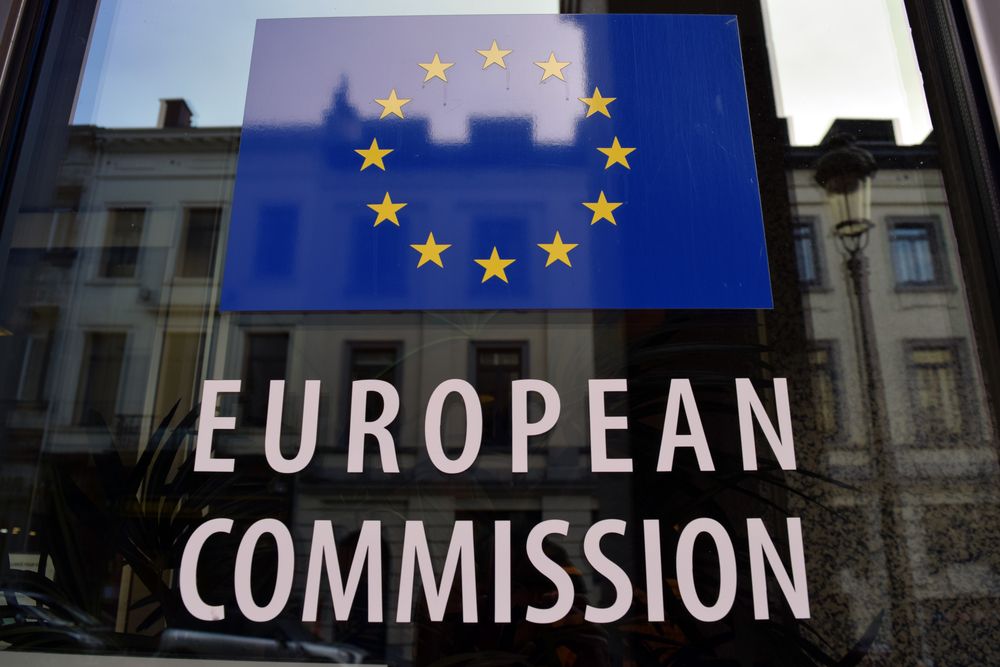 Is Ripple part of it too?
Ripple (XRP) is a part of it — ConsenSys is part of it too, but we are on the board.
So Ripple isn’t on the board?
No.
IOTA is one of the eldest members of the crypto space. What advice would you give to new startups trying to break into the blockchain industry right now?
It’s not about how much money you can raise or make, it’s about the value that you can create. Most of the projects nowadays are focused on the money-value proposition. There is not a single blockchain-centric product that ever succeeded. This is because you don’t create a product because of blockchain, you create a product with blockchain to solve a problem.
The entire industry really needs to be focused on this problem-solving aspect. If you don’t solve a problem, you will never get adoption for your product, and you will always remain in a zombie state where you just have this token that has no purpose.
You have to be driven and passionate about what you’re doing, otherwise, you won’t succeed when you’re going through tough times.
The other point is to stay focused. Focus on delivering an answer to the problems that exist.
For this year, can we mark any special dates on our calendars for big IOTA developments?
The entire year is exciting because we are really focused on making IOTA the first enterprise-ready permission-less ledger. We have a lot of effort going into removing the Coordinator as well as ecosystem development.
We are focused on having products run by companies on the live network.
Is Ripple part of it too?
Ripple (XRP) is a part of it — ConsenSys is part of it too, but we are on the board.
So Ripple isn’t on the board?
No.
IOTA is one of the eldest members of the crypto space. What advice would you give to new startups trying to break into the blockchain industry right now?
It’s not about how much money you can raise or make, it’s about the value that you can create. Most of the projects nowadays are focused on the money-value proposition. There is not a single blockchain-centric product that ever succeeded. This is because you don’t create a product because of blockchain, you create a product with blockchain to solve a problem.
The entire industry really needs to be focused on this problem-solving aspect. If you don’t solve a problem, you will never get adoption for your product, and you will always remain in a zombie state where you just have this token that has no purpose.
You have to be driven and passionate about what you’re doing, otherwise, you won’t succeed when you’re going through tough times.
The other point is to stay focused. Focus on delivering an answer to the problems that exist.
For this year, can we mark any special dates on our calendars for big IOTA developments?
The entire year is exciting because we are really focused on making IOTA the first enterprise-ready permission-less ledger. We have a lot of effort going into removing the Coordinator as well as ecosystem development.
We are focused on having products run by companies on the live network.
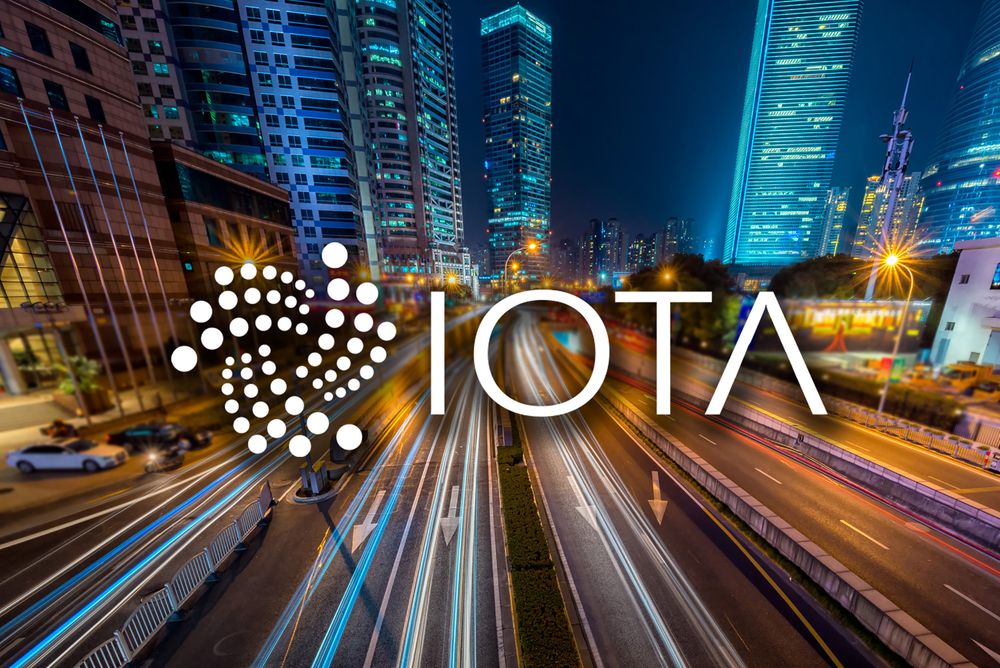 This year we’ve seen IBM leveraging the Stellar network. What kind of partnerships, if any, do you think will help deliver on the dream of mass adoption?
I don’t think the silver bullet exists. Even though Stellar (XLM) has been overhyped, it’s really about having a trajectory — this plan towards mass adoption.
A single company will not deliver mass adoption, it’s more about having multipliers in the ecosystem that you partner with. We are focused on these multipliers. It’s not about a single entity, but multiple ones acting in cooperation across the entire industry.
So that’s what we’re focused on, as well as getting our ecosystems closer together so that they create value on their own.
I think that these companies and projects like Stellar and Ripple have a big war chest, they have a lot of money as a result of their pre-sale where they kept a lot of their tokens themselves. We’re more focused on creating a self-sufficient ecosystem, where the system as a whole sees the value in IOTA, and work together on creating new products.
Recently in Oslo, we had a big meetup where different corporations were promoting their own IOTA use cases. I don’t know if there are any other projects that are really focused on this level of ecosystem creation.
Will IOTA accomplish its goals this year? Will 2019 be a year of positive developments in the blockchain and cryptocurrency space? Let us know your thoughts in the comments below.
This year we’ve seen IBM leveraging the Stellar network. What kind of partnerships, if any, do you think will help deliver on the dream of mass adoption?
I don’t think the silver bullet exists. Even though Stellar (XLM) has been overhyped, it’s really about having a trajectory — this plan towards mass adoption.
A single company will not deliver mass adoption, it’s more about having multipliers in the ecosystem that you partner with. We are focused on these multipliers. It’s not about a single entity, but multiple ones acting in cooperation across the entire industry.
So that’s what we’re focused on, as well as getting our ecosystems closer together so that they create value on their own.
I think that these companies and projects like Stellar and Ripple have a big war chest, they have a lot of money as a result of their pre-sale where they kept a lot of their tokens themselves. We’re more focused on creating a self-sufficient ecosystem, where the system as a whole sees the value in IOTA, and work together on creating new products.
Recently in Oslo, we had a big meetup where different corporations were promoting their own IOTA use cases. I don’t know if there are any other projects that are really focused on this level of ecosystem creation.
Will IOTA accomplish its goals this year? Will 2019 be a year of positive developments in the blockchain and cryptocurrency space? Let us know your thoughts in the comments below.
Disclaimer
In adherence to the Trust Project guidelines, BeInCrypto is committed to unbiased, transparent reporting. This news article aims to provide accurate, timely information. However, readers are advised to verify facts independently and consult with a professional before making any decisions based on this content. Please note that our Terms and Conditions, Privacy Policy, and Disclaimers have been updated.
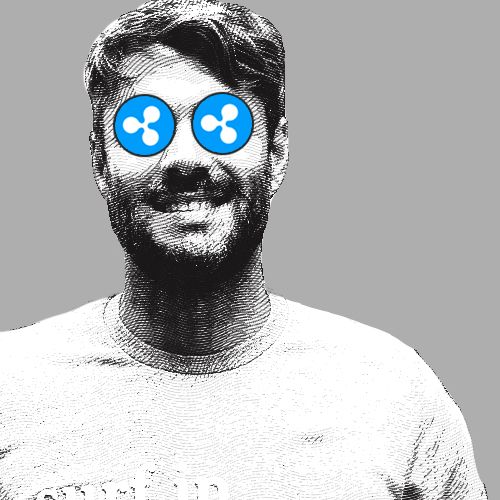
Sane Lebrun
Sane is heading social media marketing activities for BeInCrypto. After being graduated from the ESCP Europe Business School with a master in management, he has been in charge of leading marketing initiatives for tech companies like Gameloft and EyeEm. He has later jumped on the cryptocurrency bandwagon and is operating since 2017 as a blockchain marketing consultant.
Sane is heading social media marketing activities for BeInCrypto. After being graduated from the ESCP Europe Business School with a master in management, he has been in charge of leading marketing initiatives for tech companies like Gameloft and EyeEm. He has later jumped on the cryptocurrency bandwagon and is operating since 2017 as a blockchain marketing consultant.
READ FULL BIO
Sponsored
Sponsored

![IOTA Co-Founder: ‘We Are Creating a Self-Sufficient Ecosystem’ [BeInCrypto Interview]](https://beincrypto.com/wp-content/uploads/2019/04/bic_co-founder_IOTA.jpg.optimal.jpg)